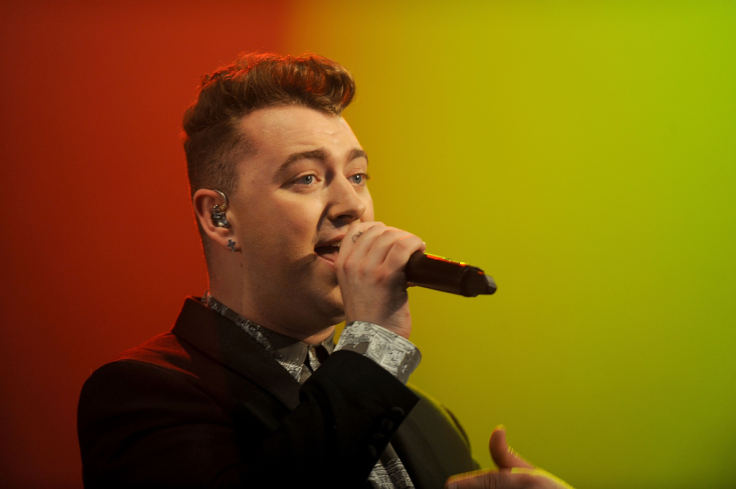Shazam And Spotify's Grammy Picks Are More Accurate Than Billboard's. Here's Why.

If you need help picking winners in your Grammys pool this weekend, your best bet is to consult two apps. Both Spotify and Shazam released Grammy-winner predictions for the third straight year this week, and the services have been more accurate than almost any other source of predictions, including music industry bible Billboard.
Spotify predicts Sia’s “Chandelier” will win both Record and Song of the Year, and that two British products, Ed Sheeran’s “X” and Sam Smith, will take home Album of the Year and Best New Artist honors, respectively. The song discovery app Shazam expects Meghan Trainor’s “All About That Bass” to win Record and Song of the Year, and Sam Smith to win Best New Artist. For the first time, Shazam declined to predict an Album of the Year, a category it has never predicted correctly.
Interestingly, neither service predicts much success for Taylor Swift, who is the second-most-popular choice to win Record of the Year in a poll conducted by Billboard. Last year, Swift pulled her entire catalog off of Spotify, citing the low payouts it makes to artists.
“I would be very surprised if Taylor Swift doesn't win any Grammys,” said Errol Kolosine, an assistant professor at NYU’s Clive Davis Institute of Recorded Music.
In 2013, Shazam picked more categories and with better overall accuracy, identifying 11 winners out of 16 predictions, including record of the year, song of the year and best new artist. That changed a great deal in 2014, when only one of Shazam’s top predictions proved correct; three of Spotify’s top four predictions came true that year.
Overall, both companies have success rates better than Billboard’s; the music trade managed to predict just two of the top four awards correctly in 2014, and the year before that, it got just one prediction right.
The platforms’ success at picking winners suggests the best place to look for the preferences of Grammy voters may be in the wisdom of crowds. “Large masses of people are good at predicting, typically, things that are hard to guess,” said Brian Uzzi, an economics professor at Northwestern University and an expert on the wisdom of crowds. “The crowd winds up being wiser than anyone in it.”
Both Spotify and Shazam have impressive sets of data to base their conclusions on – Spotify’s 60 million users streamed billions of songs last year, while Shazam has over 100 million monthly active users. But there are blind spots in each service too, such as the Taylor Swift-shaped hole in Spotify’s catalog.
Though Spotify and Shazam count very different things to make their predictions – Spotify counts streams of artists’ songs and albums, while Shazam tallies the number of times its app is used to identify a given song playing nearby – both measurements may in fact be better predictors than sales, which have not always been a strong indicator of Grammy night success.
“The more you get into the niches, the less massive sales were a deciding factor,” Kolosine said.
Unlike rival music awards shows like the People’s Choice Awards or the MTV Music Awards, Grammy winners are chosen by a select body of voters comprised of members of the National Academy of Recording Arts and Sciences. As a voting bloc, NARAS has its own quirks, according to Tammy Donham, an associate professor of the music industry at Middle Tennessee State University. “They tend to gear toward the more obscure artists that aren't popular,” Donham said. “They want to give them their due.”
Spotify and Shazam data do not match NARAS' members on expertise, but they do reflect general awareness, which comes into play when people are voting on categories they don't know much about. “There's a ton of categories people vote on that they're not experts on,” Kolosine said. Experts or insiders trying to handicap the Grammys might do well at picking individual categories, but at the end of the day, nobody is an expert in everything. That's why Spotify and Shazam are poised to get more right than wrong again. “Sometimes people will vote for that which is most familiar to them," Kolosine said.
© Copyright IBTimes 2024. All rights reserved.





















